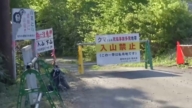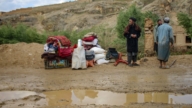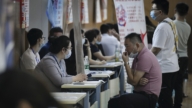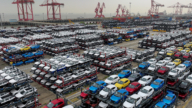【新唐人2011年10月3日讯】缅甸总统吴登盛日前在国会宣布尊重缅甸人民意愿,暂停与中方合资的密松大坝水力发电站建造计划。中共外交部在10月1号作出首次回应,希望与缅甸通过协商处理。
吴登盛在国会宣读的声明中表示,密松水电站项目违反了缅甸人民的意愿,在他的任期内将暂停这个项目。
他说:“缅甸政府是民选政府,因此,我们必须注意人民的意愿,我们有义务把重点放在解决人民的担忧和顾虑。”
中共外交部最初表示要核实消息,并在事隔24小时后首次回应,密松电站是中缅两国的合资项目,对项目实施过程中的有关事宜,应协商处理。
密松大坝是缅甸最大的水力发电工程,造价36亿美元。电站距离云南腾冲县约200多公里,位于缅甸北部的克钦山区,是伊洛瓦底江干流河段上拟开发的第一级电站,总装机容量为600万千瓦。
密松大坝同时是中共最大的境外水电建设经营和转让项目,相当于中国的三峡电站。中缅两国于2006年签定合同,由中资企业中国电力投资集团单方出资兴建,完工后9成电力将输往中国大陆。
2009年底密松大坝工程开始动工。施工一年多来,缅甸的环保人士、学者、克钦少数民族领袖和政客等,都纷纷抗议抵制这一工程,其中包括著名的缅甸民主派领袖昂山素季。他们抗议,这项工程已经导致居住在伊洛瓦底江沿岸,成千上万的克钦少数民族居民被迫迁移,还将严重破坏伊洛瓦底江的生态环境。
伊诺瓦底江是缅甸的母亲河,孕育缅甸的文化和历史。缅甸的一名评论人士说:“每个缅甸人都与这条江有情感联系,这就是为什么会有这么多人反对大坝工程。”
BBC东南亚事务记者哈维透露,尽管中国电力集团公司邀请中缅专家对工程进行评估,但评估报告未公之于众。
此外,BBC还透露,有消息称中共合作方在大坝开工后,才开始对其影响进行评估研究。批评人士认为这是“本末倒置”。
《中国与印度交汇:缅甸和亚洲的新交点》一书的作者吴坦敏表示,如果中国投资的项目不透明、对当地的影响不予考虑的话,就会起到反作用。
有观察家认为,吴登盛的决定显示了缅甸新政府态度的转变。他们越来越愿意倾听民众的声音,以试图取得国际社会的承认。
但据《美国之音》报导,缅甸河流网络组织提醒,由中国电力投资集团负责的密松电站工程目前还没有停止。环保组织呼吁中方工程人员和设备尽快撤出电站施工区,并让被迫迁移的克钦民众返乡,以保障电站停建。
目前旅居德国的水利专家王维洛向《德国之声》表示,缅甸叫停密松大坝工程应该会对中国产生一定的影响。现在整个中国水电发展有些疯狂的势头,王维洛认为这是在中共当局以“发展比什么都重要”为基础作出的错误决策。
王维洛还说:“中国对生态环境保护的理解和国外有很大不同。当年建设三峡大坝谈及对生态的危害的时候,政府就强调大坝工程是为了提高人类的生活品质,满足人的需求。北京总是把人看作是自然的主宰。”
新唐人记者李明飞,王明宇综合报导。
Burma Stops Sino-Invested Myitsone Dam Project
Burmese President Wu Dengsheng recently announced
that construction of the Myitsone Hydroelectric Dam
Project, jointly developed by Burma and China, would be suspended.
China’s Foreign Ministry responded on Oct. 1, claiming that
the issue is being handled through ongoing negotiations.
Burmese President Wu Dengsheng said in a statement that
construction of the Myitsone hydropower project was
against the will of the Myanmar people and will be suspended
during his term of office.
Wu said, “The government of Burma is democratically
elected. We must care about the people’s wishes, and are
obligated to focus on solving people’s fears and concerns."
China’s Foreign Ministry’s initially responded by saying
that they’ll need to verify the news.
However, 24 hours later, it claimed that the Myitsone
hydropower station is a joint venture between the two countries,
and as such, everything will be handled through negotiation.
The US$3.6 billion Myitsone Dam is Burma’s largest and
most high-tech hydropower plant.
The power station is located in Burma’s northern mountains,
along the Irrawaddy River, about 200 kms (124.27 miles) away from Tengchong County, in Yunnan Province, China.
The dam is capable of generating of 600 million kilowatts
of electricity.
The Myitsone Dam, contracted in 2006, is the largest overseas
Build-Operate-Transfer project initiated by
the Chinese Communist Party (CCP), equivalent to
the Three Gorges Power Station in China.
Funding and construction of the dam is being entirely undertaken
by the China Power Investment Group.
After completion, 90% of the electricity is
to be exported to mainland China.
Since construction of the dam began at the end of 2009,
Burma’s environmentalists, scholars, ethnic Kachin leaders,
and politicians fiercely protested against the project,
including Aung San Suu Kyi, Burma’s pro-democracy leader.
They claimed that the project would cause serious ecological
damage to the Irrawaddy River and has already forced
the migration of thousands of ethnic Kachin residents
living along the river.
The Irrawaddy River is regarded as Burma’s “Mother River,"
giving birth to the Burmese culture and history.
A Burmese commentator said,
“Every Burmese person has emotional ties to this river,
and that is why so many people oppose the dam project."
The BBC’s Southeast Asia journalist, Rachel Harvey,
Reveals that the China Power Investment Group invited
experts in China and Burma to assess
the project, but the report was never made public.
According to BBC’s reports, sources said that
the Chinese partner did not conduct any impact assessments
until after the dam project was started, which was criticized as
“putting the cart before the horse."
Thant Myint-U, author of new book, China Meets India:
Burma and the New Crossroads of Asia, comments that
if Sino-investment projects were opaque and without
consideration of the impact they would have on
the local environment,
they will certainly prove to be counterproductive.
Some observers believe that President Wu’s decision shows
an attitude change towards Burma’s new government.
They are increasingly willing to listen to the people’s voice,
trying to get international recognition.
However, according to Voice of America reports,
Burma Rivers Network, an environmental group, reminded everyone
that the Myitsone power plant project has yet to be halted.
Environmental groups called for the expedient withdrawal of
Chinese engineers and equipment from the construction area.
They also appealed to the ethnic Kachin people to return
to their hometown, calling on their help to stop the project.
Dr. Weiluo Wang, a hydraulic engineer now living in Germany,
told the Voice of Germany that the momentum of
China’s hydropower development is out of control
because it is based on the policy of “development is more important than anything else."
He feels that Burma’s halting of the Myitsone Dam project
will exert some pressure on China.
Dr. Weiluo Wang, “The term, ‘environmental protection’ has
a totally different meaning in China than in foreign countries.
When environmental groups argued about the ecological
damage that the Three Gorges Dam might bring to the area,
CCP authorities stressed that the dam project would improve
the quality of human life and meet the people’s needs.
The Beijing regime always regards human beings as
the nature’s master."
NTD reporters Li Mingfei and Wang Mingyu.






























